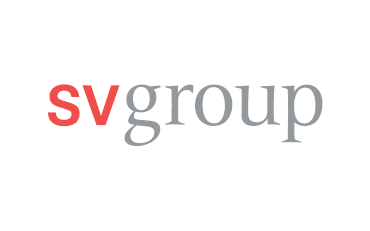Partnership with SV (Schweiz) AG 2023
Together with WWF, SV Schweiz launched the sustainability program “ONE TWO WE” in 2013. At the core of the program are tailor-made sustainability plans for establishments managed by SV Schweiz and raising awareness among guests.

2023 was the first year in which the hospitality industry could operate entirely without measures to contain the SARS-CoV-2 coronavirus. However, due to the changing work environment with the established home office, the long-term effects of the pandemic are now particularly noticeable in the hospitality sector. The industry struggled with highly fluctuating guest volumes in community catering, which made planning difficult. Additionally, the sharply rising food prices and the limited availability of certain goods posed significant challenges. Therefore, WWF and SV (Switzerland) AG have agreed to extend the CO2 reduction goal, the seafood goal regarding Score 1+2, and the target for label products to 2023.

CLIMATE AND ENERGY
SV Schweiz pursues ambitious climate goals — compatible with the Paris Climate Agreement — and tries to reduce additional environmental impact along the entire value-added chain as well. For example, SV Schweiz exclusively offers carrots with the IP-Suisse quality mark and sources tomatoes and peppers from greenhouses that are not heated with fossil fuels.
Greenhouse gas reduction SV Switzerland
This goal has been extended to 2023, see disclaimer above. The greenhouse gas emissions of SV Switzerland (SBT Scope 1-3) are to be reduced by 17% per main meal by the end of 2023 (compared to 2018). The scope comprises all business areas of SV Switzerland.
In 2023, a decrease of 9.4% was registered compared to 2022 (current absolute value 2023: 2.32 kg CO2e per sold main course).
Comment: Compared to 2022, SV was able to reduce emissions, e.g. by selling more vegetarian dishes and reducing food waste. Nevertheless, the demand for climate-friendly menus is not yet sufficient. From 2024, an orientation system developed with Beelong will be introduced in numerous restaurants to raise awareness among guests by increasing transparency with regard to environmental impact.

FISH AND SEAFOOD
Since 2019, SV Schweiz has committed to continuously increasing the share of fish from recommendable or acceptable sources according to the WWF in order to promote biodiversity.
Share of recommendable, or acceptable sources, according to WWF, relative to the total seafood range
This target has been extended to 2023 (see disclaimer above). In 2019, SV Schweiz set itself the goal of increasing the sustainability of its entire fish range. The entire offer of marine fish, shellfish, mussels, and freshwater fish should be either farmed or caught in the wild from sources identified as very recommendable, recommendable, or acceptable by WWF. The scope comprises the entire fish and seafood range of SV Schweiz.
In 2023, the share of fish and seafoodfrom very recommendable, recommendable, and acceptable sources relative to the overall range increasedfrom 98.1% (in 2021) to 98.6%.
Comment: The target was not achieved because products were subsequently added to the assortment and not evaluated or errors occurred during ordering or delivery.
Share of sources identified by WWF as recommended relative to the overall seafood range
This goal has been extended to 2023 (see disclaimer above). The share of very recommendable and recommendable sources according to WWF should be at least 80% of the total amount purchased by SV in one year in kilograms by 2023. The scope comprises the entire fish and seafood range of SV Schweiz.
In 2023, the share of fish and seafood from recommendable sources decreased from 82.1% to 81.3%.

SUSTAINABLE CONSUMPTION
SV Schweiz promotes sustainable consumption by increasing the share of label products in the food it uses. Special climate-friendly meals are offered to raise awareness among guests which are meatless, contain few milk products, and do not contain products transported by air. They are also prepared primarily from seasonal products.
Share of recommended label products relative to overall revenue
This goal has been extended to 2023 (see disclaimer above). To promote sustainable consumption, SV Schweiz has set itself the goal of increasing the share of label products that are recommendable to at least 15% by the end of 2023. The revenue of label products to overall goods revenue is measured; meat, poultry, and fish are not included.
In 2023, the share of label products increased from 13.3% (2022) to 13.8%.
Note: Compared to 2022, the label share increased again slightly, as items that were unavailable during the coronavirus pandemic could be reused and also because the economic recovery increased the sale of label products again (e.g. coffee with the Fairtrade or Rainforest Alliance label).

